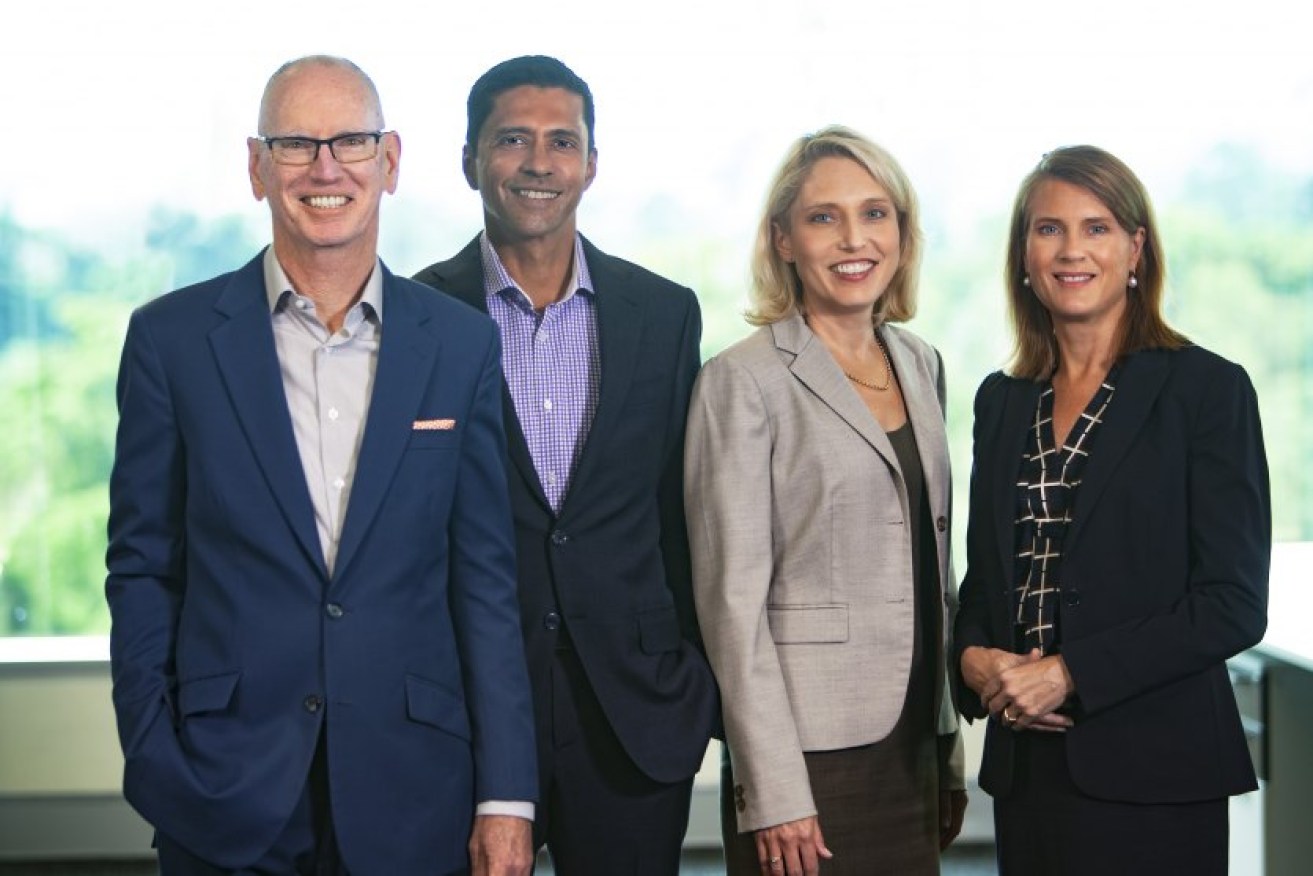One in three councils could be financially unsustainable: Auditor
A dire audit of Queensland councils has prompted the State Government to reconsider long-term funding.

Auditor-General Brendan Worrall (left) with members of his team. (Supplied)
In a report tabled in State Parliament today, Auditor-General Brendan Worrall said 70 per cent of Queensland councils spent more than they earned in the 2020 financial year.
That was a higher proportion than previous years, but Worrall said it was not unexpected.
“Travel restrictions, community lockdowns and initiatives to support their communities through the pandemic, meant councils earned lower revenue,” Worrall said, giving as examples councils that waived or discounted revenue from car parking, dining, or had reduced patronage at public facilities and airports.
“And they incurred more expenditure (such as) higher employee costs by bringing forward capital projects, maintaining quarantine facilities and border controls, and increased cost of cleaning of council and public facilities.”
Councils more reliant on government grants, a year-by-year proposition, were worse off, particularly if they had poorer internal controls or lacked an audit committee.
At the end of last financial year, 25 councils were at high risk of not being financially sustainable – four more than the previous year. That accounted for around one-third of the sector.
Worrall and the Queensland Audit Office recommended the government review its funding model to move from one-year grants to a 3-5 year funding model.
Department of State Development, Infrastructure, Local Government and Planning director-general Damien Walker said the Works for Queensland Program and the South East Queensland Community Stimulus Program had been released as two three-year rounds.
“During 2021, the department will review the Indigenous Local Government State Government Financial Aid Program, Revenue Replacement Program, and Indigenous Economic Development Grants Program, and intends to report back to Government in the first half of 2022,” Walker told Worrall in a letter tabled with the report.
Local Government Association of Queensland head of advocacy Alison Smith said the report illustrated how tough COVID-19 has been on councils and communities already struggling amid challenging budgetary conditions.
“Councils need greater funding certainty, and we welcome the Auditor-General’s recommendation for more long-term programs to be provided to help local governments plan for the future,” Smith said.
“The financial reality facing rural, remote and Indigenous councils is that their rate base is small – or in some cases non-existent.
“For almost half of Queensland’s 77 councils, the amount they collect in rates amounts to less than 15 per cent of their annual budget.
“They have to balance this with providing the services their communities need – including services they have had to step in to provide following market failures in their community, like childcare.
“And they have had to do this while helping their communities cope with and recover from natural disasters like floods and droughts, as well as the ongoing COVID-19 pandemic.”












